Introduction
The market for wellness challenge apps is booming, reflecting the increasing emphasis on holistic well-being. These apps offer users a seamless way to enhance their lifestyle across various dimensions of health, such as physical fitness, mental well-being, and nutritional habits. Research shows that the use of these apps can lead to significant improvements in health behaviors, including increased physical activity, reduced sedentary behavior, and improved dietary choices.
With the wellness market continuing to grow and consumers prioritizing their well-being, these apps are essential tools for fitness professionals looking to support their clients. Moreover, wellness challenge apps go beyond mere tracking; they provide motivation, accountability, personalized workouts, and nutrition plans. They also foster social support and competition, leveraging the power of connections and shared goals.
Incentives and rewards further enhance engagement and make the pursuit of wellness enjoyable. When choosing the right app, it's important to consider factors such as its ability to track multiple health behaviors, adherence to safety standards, and alignment with global health standards. User reviews and ratings offer valuable insights into app effectiveness and user experiences.
Features like goal setting, tracking capabilities, workout libraries, meal planning tools, and community support contribute to a comprehensive wellness experience. Compatibility across different devices and platforms is crucial for a seamless user experience. The evolving landscape of wellness challenge apps holds tremendous potential for individuals and organizations seeking to prioritize their well-being and achieve a flourishing life.
Benefits of Using Wellness Challenge Apps
The rise in the number of challenge applications is evidence of the changing landscape of personal well-being. The World Health Organization's Ottawa Charter for Health Promotion recognizes health as "a resource for everyday life," underscoring the multi-dimensional aspects of health that include physical, mental, emotional, and social well-being. In alignment with this comprehensive approach, health apps are gaining traction, offering users an intuitive way to enhance their lifestyle across these dimensions.
Current trends reveal a growing prioritization of wellness, with 58% of U.S. survey respondents indicating an increased focus compared to the previous year. This rise in interest is combined with the growth of consumer technology in the field of well-being, which includes digital tools that have demonstrated significant potential in enhancing behaviors related to well-being. According to research by Dr. Ben Singh from the University of South Australia, the use of electronic and mobile health interventions like apps, websites, and text messaging can lead to:
- An increase of 1,329 steps per day
- An additional 55 minutes of moderate-to-vigorous exercise per week
- 45 minutes more overall physical activity per week
- A reduction of 7 hours of sedentary behavior per week
- A 20% increase in daily fruit and vegetable consumption
These findings are not only compelling but also provide actionable insights for fitness professionals who can leverage these tools to better support their clients. The health market, a multi-trillion-dollar industry according to the Global Wellness Institute, has consistently outperformed the global GDP growth rate, reflecting the enduring value that consumers place on health practices.
Furthermore, nearly 50 studies encompassing over 206,000 participants reveal that health applications can significantly improve health-related behaviors, including daily step count, physical activity levels, and sleep quality. As the Global Wellness Institute emphasizes, well-being spans various sectors and has become a fundamental value system impacting daily choices and lifestyle decisions, from dietary habits to environmental awareness.
In the present health landscape, the ease and effectiveness of health challenge applications are undeniable, providing individuals with a smooth method to incorporate healthy habits into their daily routines and cultivating a feeling of empowerment to accomplish their individual health objectives.
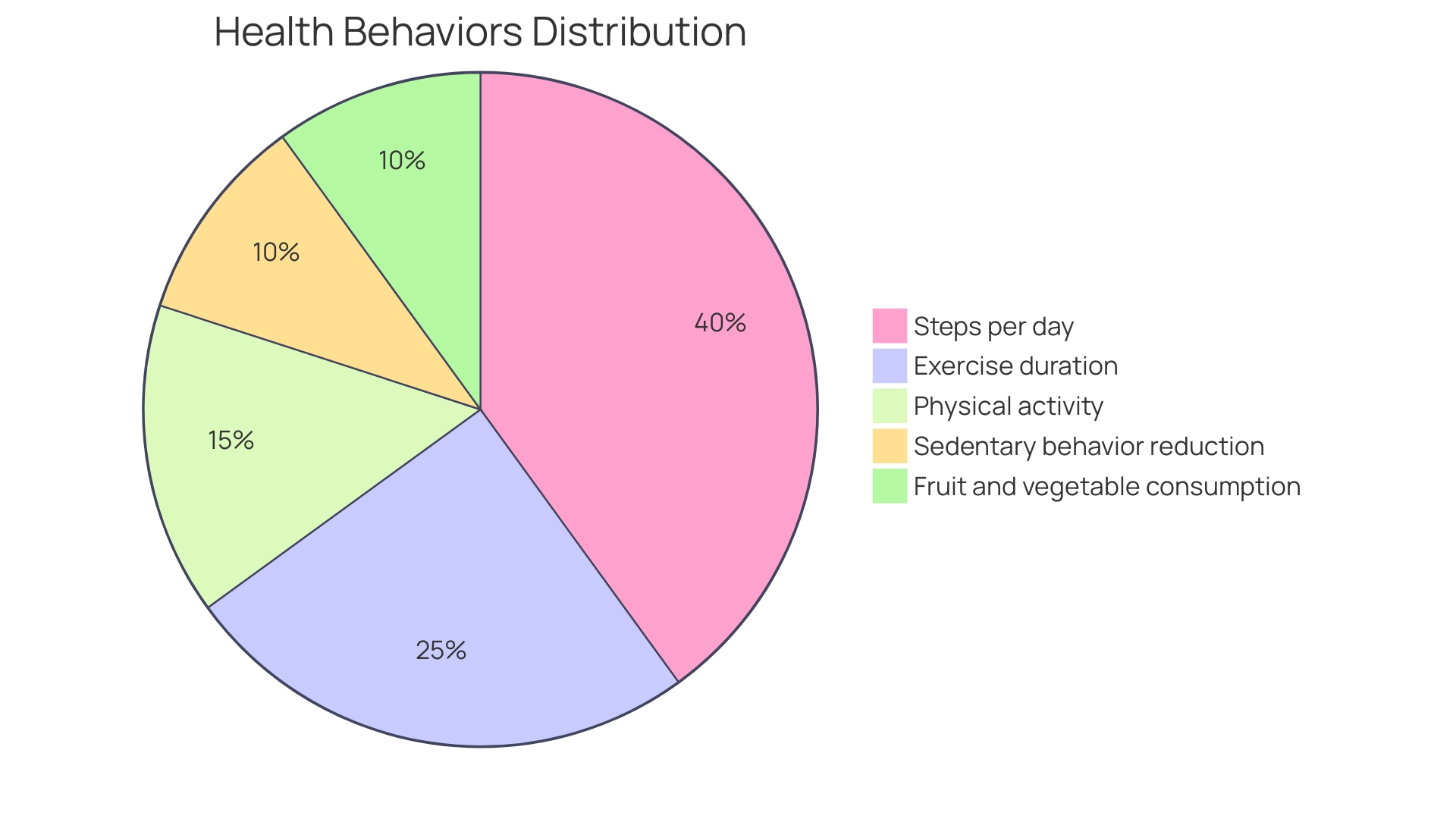
Motivation and Accountability
The transformative power of health challenge applications lies in their ability to convert health aspirations into attainable goals. These digital companions are more than just silent trackers; they are proactive motivators that align daily actions with long-term objectives. By offering immediate feedback and commemorating achievements, they assist individuals in sustaining concentration and progress on their journey towards well-being.
With apps that personalize goal-setting and time management, busy individuals can discover new opportunities to prioritize their well-being. For example, an exceptional app in the health field guarantees to be a positive influence in the face of technology addiction, assisting users in taking back time and channeling it towards healthier activities.
In the consumer health landscape, a significant 58% of US survey respondents are giving more importance to their well-being than in the previous year. This change is reflected in the increasing need for applications that provide personalized assistance in different areas of life, ranging from physical fitness to the management of stress. These applications are not just about establishing objectives; they are about changing lives through consistent, positive action.
A recent expansive study involving over 61,000 individuals with gym memberships found that behavior change is best supported by interventions that engage participants consistently over time. This observation is especially useful for fitness applications aiming to increase gym participation and overall physical activity.
Furthermore, the success of wellness applications is also evident in the wider patterns of the digital terrain. As individuals strive to enhance their well-being amidst hectic routines, these applications emerge as essential resources, providing a combination of responsibility and motivation. With features designed for goal tracking and habit formation, they empower users to overcome the most commonly cited hurdle to improved well-being: lack of time.
In the end, the success of health promotion applications lies not only in the technology itself, but in their utilization to cultivate an environment of well-being that is available, captivating, and gratifying for all.
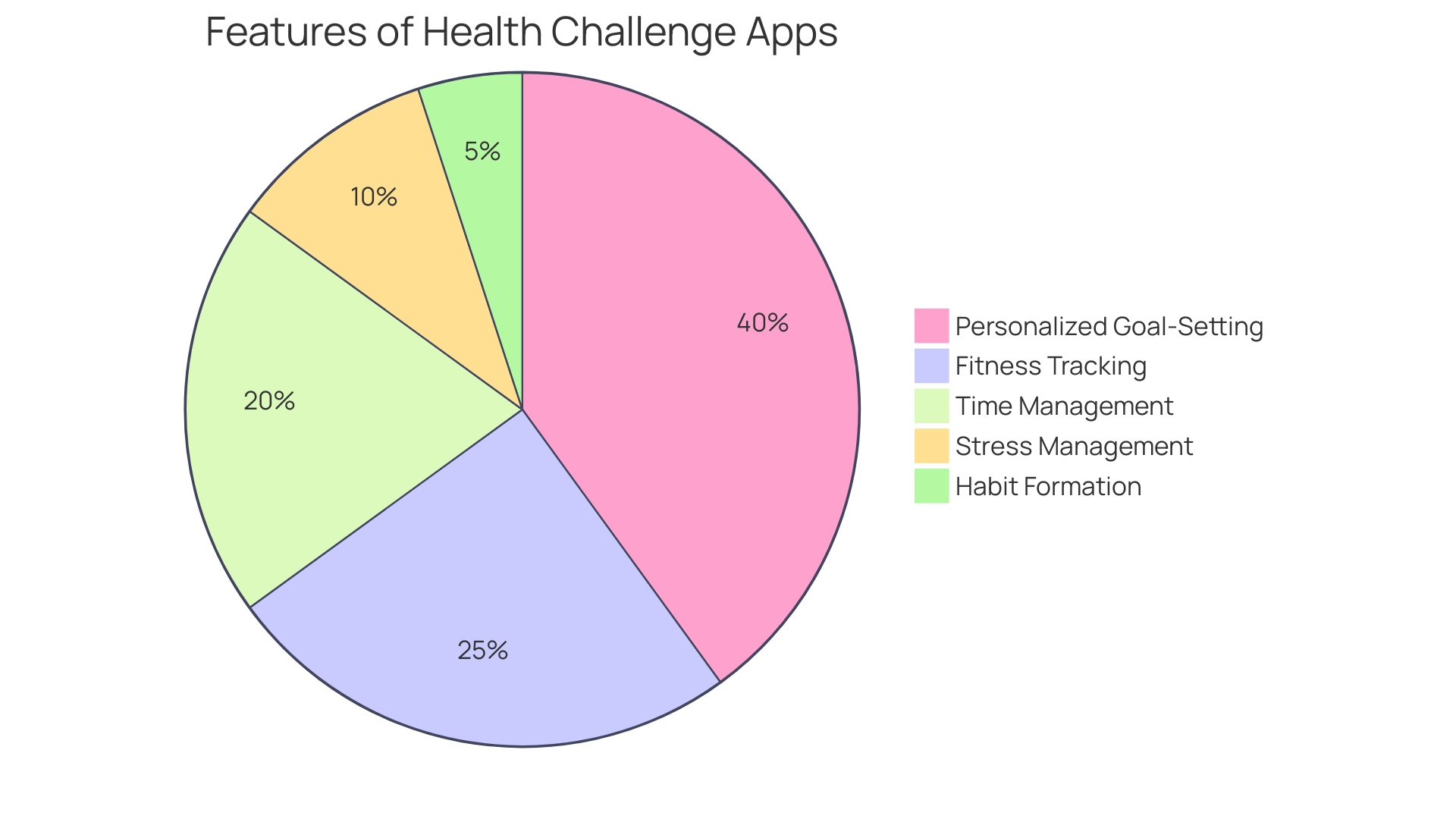
Personalized Workouts and Nutrition Plans
Embracing the digital age, wellness challenge apps have become a pivotal tool for those seeking a healthier lifestyle. These advanced platforms offer more than just basic tracking; they provide customized fitness and nutrition programs that cater to individuals' unique preferences, goals, and medical considerations. Apps like Future stand out by connecting users with expert coaches to craft workout plans that are not only tailored to individual capabilities and resources but are also influenced by the coach's extensive experience in elite fitness environments. The convenience of such applications is undeniable. They function as pocket-sized personal trainers, analyzing your exercise and dietary habits, and even integrating with wearable devices to offer a comprehensive management system. As we navigate a world where maintaining a healthy work-life balance is crucial, especially for small business owners, these applications serve as essential companions, guiding and motivating users towards their health objectives. Furthermore, with consumer interest in well-being surging, these applications are at the forefront of technological and product innovation, addressing the growing demand for personalized solutions for personal wellness and contributing to a future where well-being is within everyone's reach.
Social Support and Competition
Integrating social connectivity into health challenges can greatly enhance the experience and effectiveness of these programs. Apps like Flourish harness the power of science-based practices to facilitate meaningful connections, not only with oneself but also with others in one's community. By doing so, these platforms create a supportive environment that encourages participation and fosters a sense of shared purpose. Participants are more likely to find joy and reduce stress when they engage with friends, family, or colleagues in a collective effort to improve well-being. This collaborative aspect is not just about competition; it's about building resilience and discovering a greater sense of purpose together. Furthermore, with the swift digital revolution in healthcare, as observed in Kazakhstan's transition to a digitally empowered health system, these well-being applications exploit technological advances to render the study of happiness reachable and implementable for all. Statistics show a increasing pattern, with 58% of US respondents indicating a higher prioritization of well-being compared to the previous year. This indicates a growing consumer interest in applications that not only enhance mental well-being but also offer social assistance to sustain physical activity, ultimately resulting in a more thriving existence.
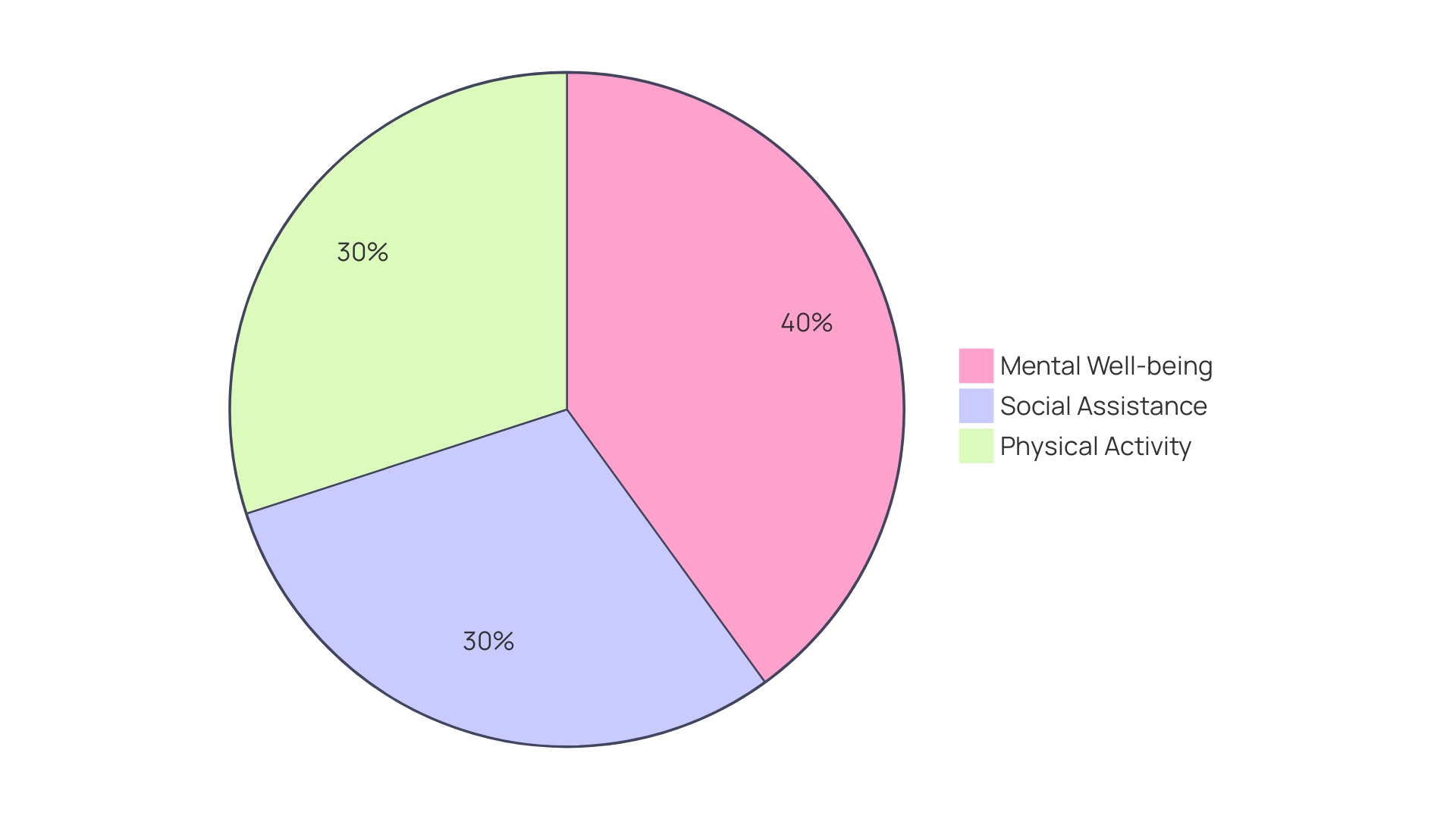
Rewards and Incentives
In the domain of health challenge applications, the attraction of rewards is undeniable. From the joy of unlocking virtual badges to the thrill of securing coveted fitness gear discounts, or even the chance to win monetary rewards, these incentives are more than mere perks. They embody a powerful catalyst for fostering lasting commitment to one's journey of personal well-being and fitness.
Through the incorporation of evidence-based methods, these applications not only provide incentives but also convert the quest for a healthy lifestyle into a reachable, enjoyable, and practical encounter. Imagine an app that distills complex scientific insights into engaging activities that not only enhance your daily routine but also encourage the discovery of joy, the reduction of stress, and the building of resilience.
In the digital era, where information about well-being is rapidly advancing, apps for personal well-being stand at the forefront of this transformation. They utilize the power of artificial intelligence to guarantee safety, efficiency, and a personalized method to health, bringing the advantages of technology directly to individuals.
Consider the global trend toward prioritizing wellness, with a staggering 58% of US citizens placing greater emphasis on personal well-being now more than ever before. Fitness apps are emerging as digital allies, enabling users to effortlessly align their exercise and nutritional habits with their bustling lifestyles.
Moreover, the success of incentivizing physical activity is evident; governments and corporations worldwide have seen positive outcomes from financially rewarding exercise. Even small increases in daily activity, like a 10-minute walk, can result in notable improvements in well-being, including improved mental well-being, pain alleviation, and better sleep.
Organizations are increasingly measuring the effectiveness of health programs, considering factors such as adoption, satisfaction, and actual health outcomes. Using advanced tools like Mixpanel, businesses are utilizing data to enhance the performance of these health initiatives, affirming the concrete advantages that such applications can provide to users' well-being.
Essentially, challenge applications are not only about the rewards one can earn but about the extensive, enjoyable, and scientifically based journey towards a thriving life.
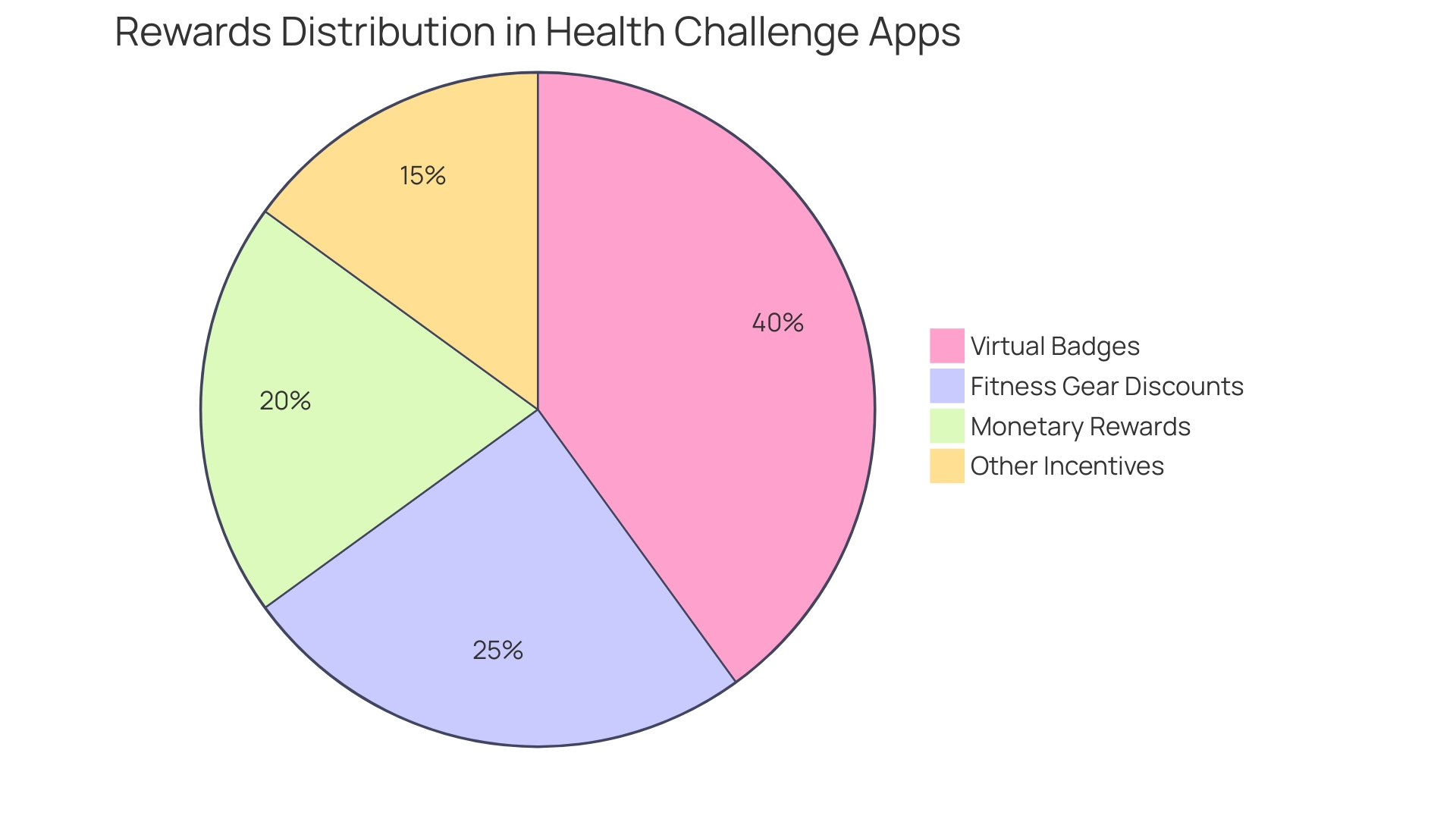
Tips for Choosing the Right Wellness App
Choosing the appropriate fitness challenge application can be a crucial measure in promoting not only the bodily condition, but also the emotional welfare of individuals. Digital tools focused on wellness have been proven to have a substantial influence on behaviors related to well-being. Research by Dr. Ben Singh from the University of South Australia, involving more than 206,000 participants, demonstrates that users of digital interventions took an extra 1,329 steps daily, exercised 55 more minutes each week, and saw a 20% increase in their fruit and vegetable intake. These applications can be particularly enabling for individuals encountering obstacles in conventional healthcare settings, including those with mental wellness concerns. The use of mobile technologies, therefore, emerges as a promising gateway to enhanced well-being. When selecting an app, take into account its capability to monitor and promote a range of behaviors related to well-being, including physical activity, dietary habits, and sleep quality. The World Health Organization highlights the significance of AI systems' safety and effectiveness in medical tools, which is a crucial factor for any well-being application. Additionally, with countries like Kazakhstan embracing digital interventions across all levels of their healthcare systems, the global trend towards digital solutions is clear. The appropriate application should conform to these worldwide standards, guaranteeing a thorough approach to well-being and fitness.
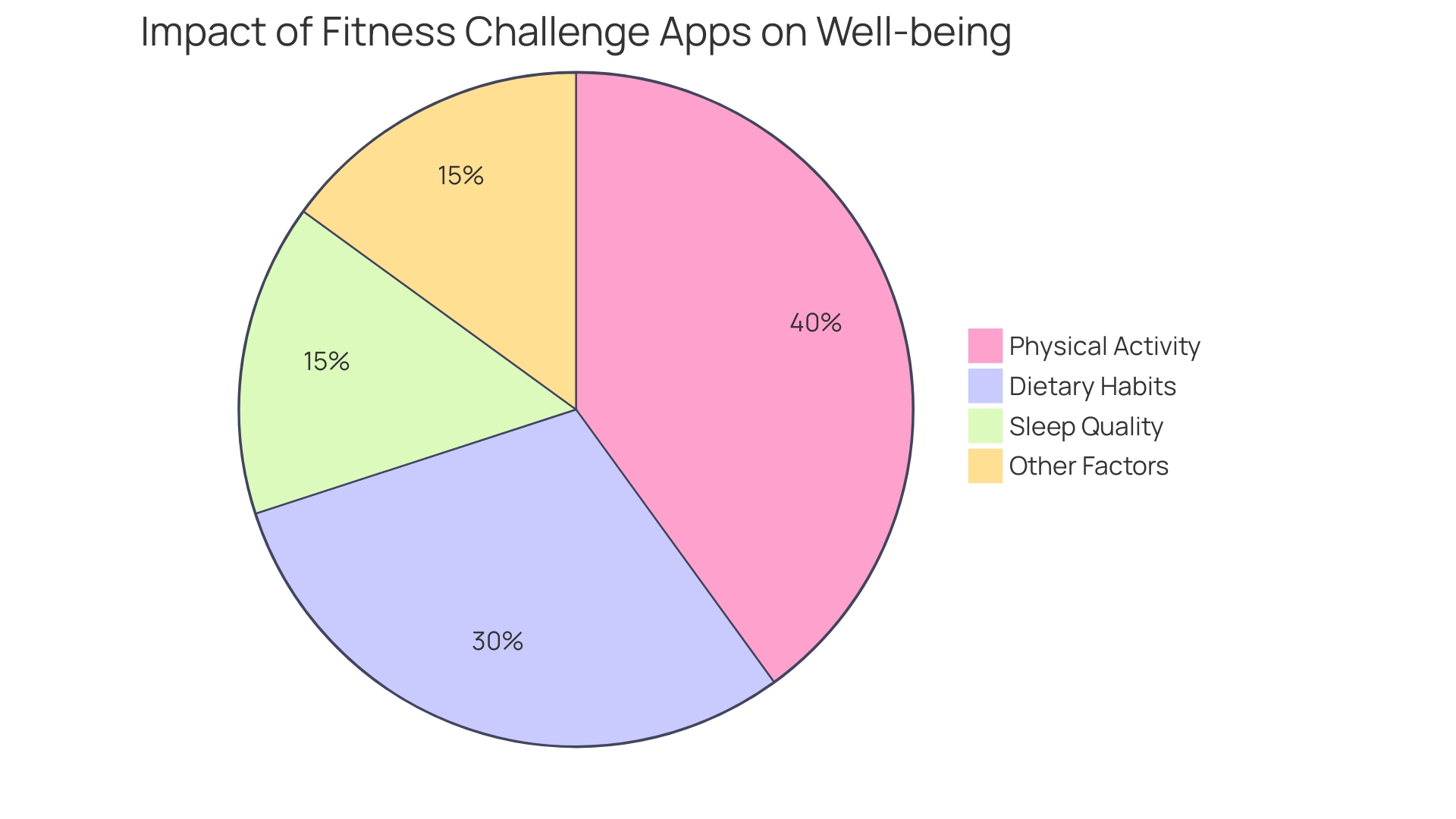
Assess Your Goals and Preferences
When exploring the world of fitness challenge applications, it's important to focus on your specific well-being goals, individual preferences, and daily routines. The market offers a range of apps, some providing a comprehensive health experience, while others focus on specific areas such as physical fitness or dietary habits. Apps like Flourish have emerged from a synthesis of scientific research and technological creativity, offering pathways to joy, stress reduction, and resilience building. As technology intertwines with healthcare, the World Health Organization emphasizes the necessity for AI systems to be safe, effective, and accessible, a sentiment echoed in the digital evolution of Kazakhstan's health system. A fitness app can be your digital ally, seamlessly integrating with wearable devices to monitor and analyze your health journey. The dynamic landscape of consumer well-being in 2024 indicates a heightened emphasis on well-being, driven by technological innovation and evolving consumer priorities. Indeed, a recent survey revealed that a staggering 58% of respondents are placing greater importance on wellness compared to the previous year. Furthermore, the utilization of monitoring technology, such as wearables, is becoming commonplace, with 50% of Americans engaging with such tools to track their daily step count, heart rate, and calorie burn. A noteworthy 23% leverage these technologies for motivation and accountability in achieving their activity objectives. These digital companions not only track our progress but are increasingly acknowledged for contributing to tangible improvements in both physical and mental well-being, with 79% of individuals recognizing positive changes in well-being.

Read User Reviews and Ratings
As the consumer health and well-being sector progresses with emerging trends and growth areas, it is crucial to contemplate how challenge applications can aid these advancements. As more and more individuals focus on their well-being and search for evidence-based methods to lead a thriving life, these applications are evolving into more than mere instruments; they serve as portals to a healthier, happier, and more meaningful way of living. The effectiveness and user experience of these applications are heavily assessed through reviews and ratings. They offer insights into how well an app aligns with scientific principles, whether it addresses specific needs such as women's health, and if it is adept at making wellbeing practices accessible and engaging.
When assessing health challenge applications, it's crucial to consider the input from a varied group of individuals. This involves considering how the application might address the distinct requirements of individuals with disabilities, as demonstrated by examples such as Accessories, which customizes its methods to assist each individual's particular circumstances. Moreover, the effectiveness of apps such as Skylight in linking individuals with spiritual resources underscores the significance of comprehensive well-being and the capacity of apps to make a positive impact on individuals' emotional and spiritual welfare.
Gaining insights from reviews can also provide information about the app's commitment to transparency principles—such as involvement of individuals, data privacy, and measurable advantages—which are crucial for trust and effectiveness. With the formal approval of digital therapies by institutions like the National Institute for Care and Excellence, the focus on scientifically assessed benefits becomes even more significant.
Therefore, dedicating the time to peruse reviews from individuals not only aids in making a more knowledgeable choice but also guarantees that the selected health challenge application is a trustworthy ally in the pursuit of enhanced health and well-being for all members of your organization.
Consider App Features and Functionality
When selecting a wellness challenge app, it is essential to consider a variety of features that can enhance the experience and effectiveness of your wellness program. Key functionalities to look for include goal setting and tracking capabilities, which empower participants to monitor their progress and stay motivated. Additionally, a comprehensive workout library can provide a range of exercises suitable for all fitness levels, ensuring inclusivity.
A strong meal planning tool can play a crucial role in guiding participants towards healthier eating habits, while community support features promote a sense of camaraderie and mutual encouragement among individuals. Incorporation with other wellness and fitness devices or applications enables a seamless interaction, where information from different sources can be merged for a comprehensive perspective of one's wellness progress.
Apps like Flourish, which is built on a foundation of happiness and well-being science, are leading the charge by making such practices accessible and engaging. As the digital health landscape continues to evolve, consumer feedback plays a pivotal role in shaping these apps. The input from the Fitbit community, for instance, has resulted in substantial updates in the app, demonstrating a dedication to satisfaction and ongoing enhancement.
With the staggering number of over 350,000 medical and healthcare applications available today, according to a report by IQVIA, the potential to create personalized and meaningful digital health experiences is vast. It is crucial for app developers to heed the evolving demands of medical professionals and users alike, aiming to create digital experiences that are not only informative but also adaptable across various technological platforms.
Check for App Compatibility
When choosing a health challenge app, it's important to make sure it aligns with the technological landscape of your devices. It should boast compatibility across both iOS and Android platforms, catering to the diverse tech ecosystems within your team. More importantly, the app should encapsulate features that resonate with the science of well-being, similar to how Flourish integrates happiness and stress reduction into actionable steps. As technology's role in our lives becomes increasingly pivotal, as noted by Sara Faatz, Director at Progress, our digital experiences should seamlessly transition across devices, enhancing productivity and engagement.
An ideal health app incorporates science-based practices that foster connections with oneself, others, and the broader world, drawing from scientific insights that have historically been buried in academic research. With the healthcare industry advancing towards digital experiences that transcend traditional boundaries, from desktops to AR/VR headsets, your chosen app should reflect this seamless integration.
Moreover, recent updates in popular fitness apps, such as Gentler Streak's multi-language support, highlight the significance of ongoing innovation and inclusivity for all individuals. In an age where over 350,000 medical and healthcare applications exist, according to IQVIA, selecting a wellness challenge app demands careful consideration of its capability to adapt and grow with user needs, providing insights and clarity through user-friendly interfaces and comprehensive health and fitness data coverage.
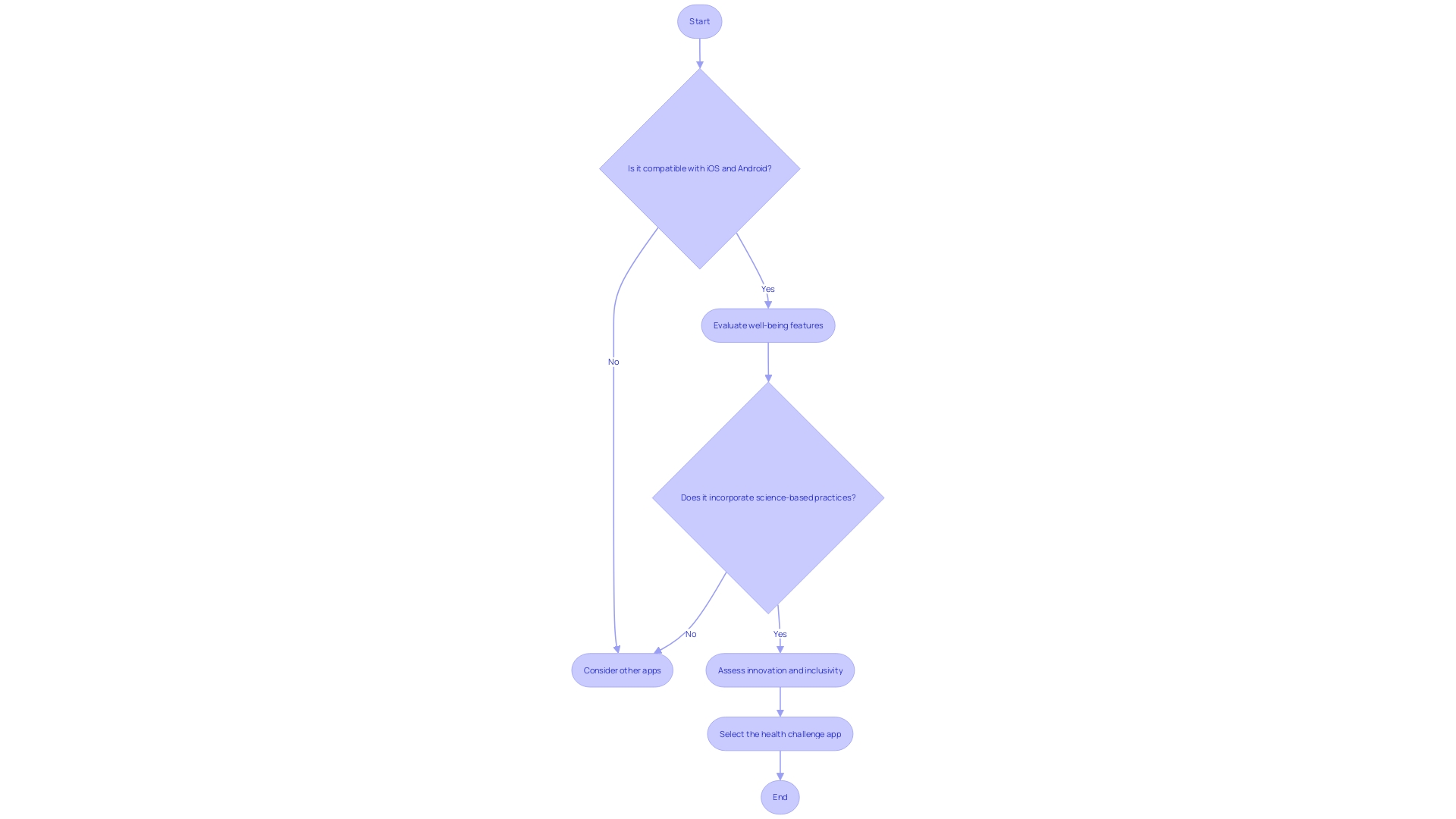
Conclusion
Wellness challenge apps offer a comprehensive approach to health and well-being, providing motivation, accountability, and personalized plans. When choosing an app, consider factors such as tracking capabilities, safety standards, and user reviews. Features like goal setting, tracking, workout libraries, meal planning tools, and community support contribute to a comprehensive wellness experience.
Compatibility across devices and platforms ensures a seamless user experience.
To maximize benefits, consider personal goals and preferences. User reviews provide insights into effectiveness and adherence to scientific principles. Features like goal setting, tracking, workout libraries, meal planning tools, and community support enhance the wellness experience.
Compatibility is crucial for a seamless user experience.
Prioritize well-being and consider unique needs. By choosing the right app and leveraging its features, organizations can support employees' physical and mental well-being. Wellness challenge apps foster a culture of health that is accessible, engaging, and rewarding for everyone.
With these apps, individuals can embark on a transformative journey towards a flourishing life.
Start your wellness journey today with our comprehensive wellness challenge app!




